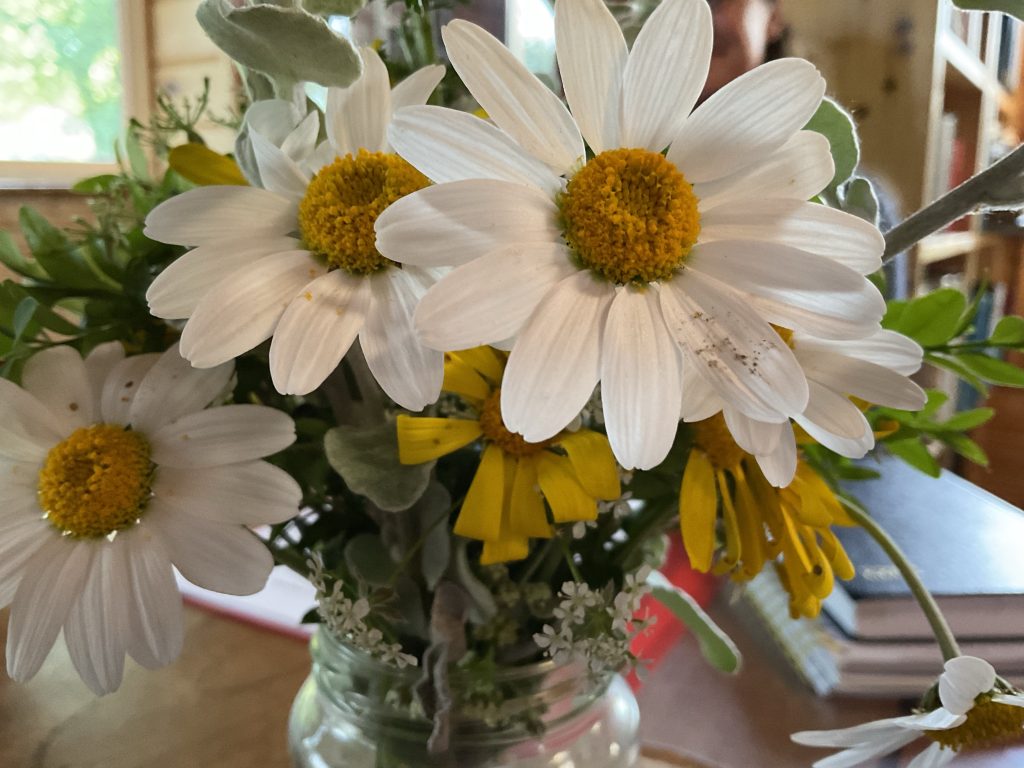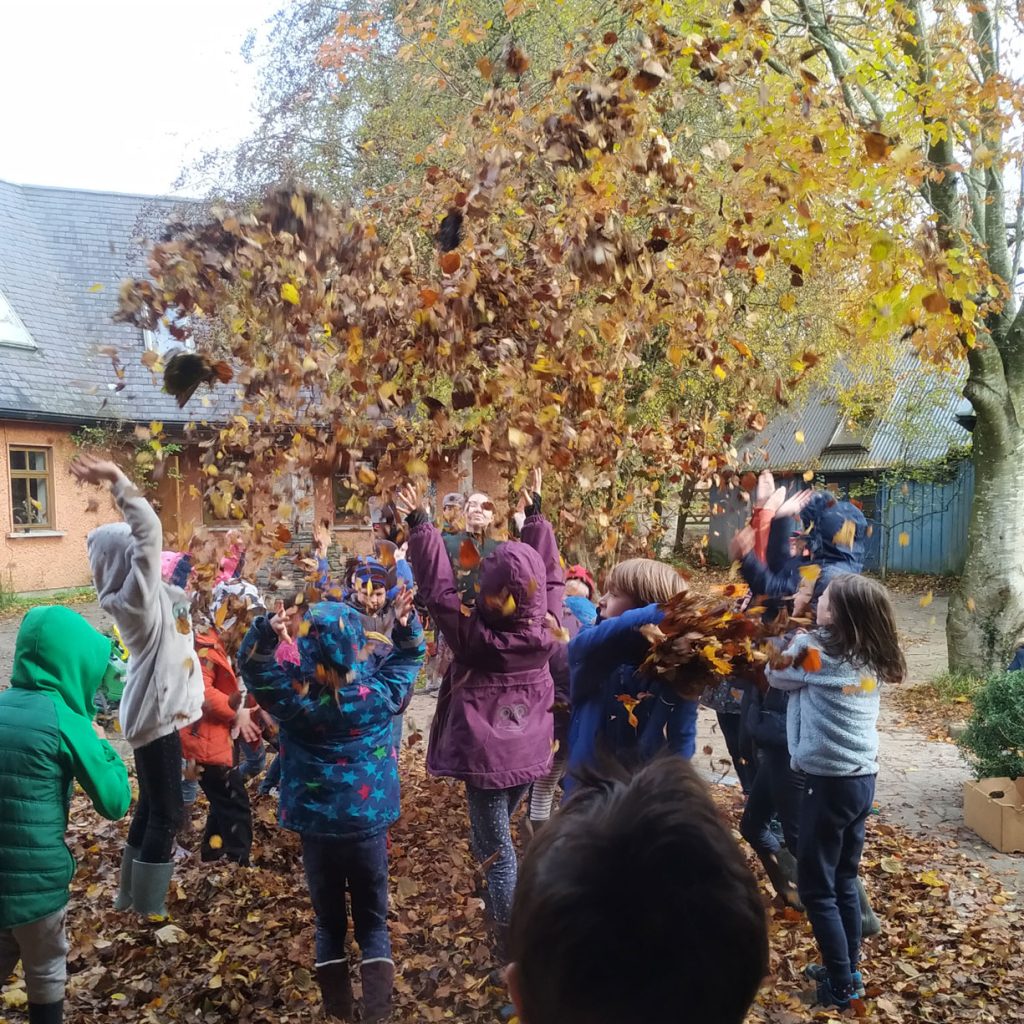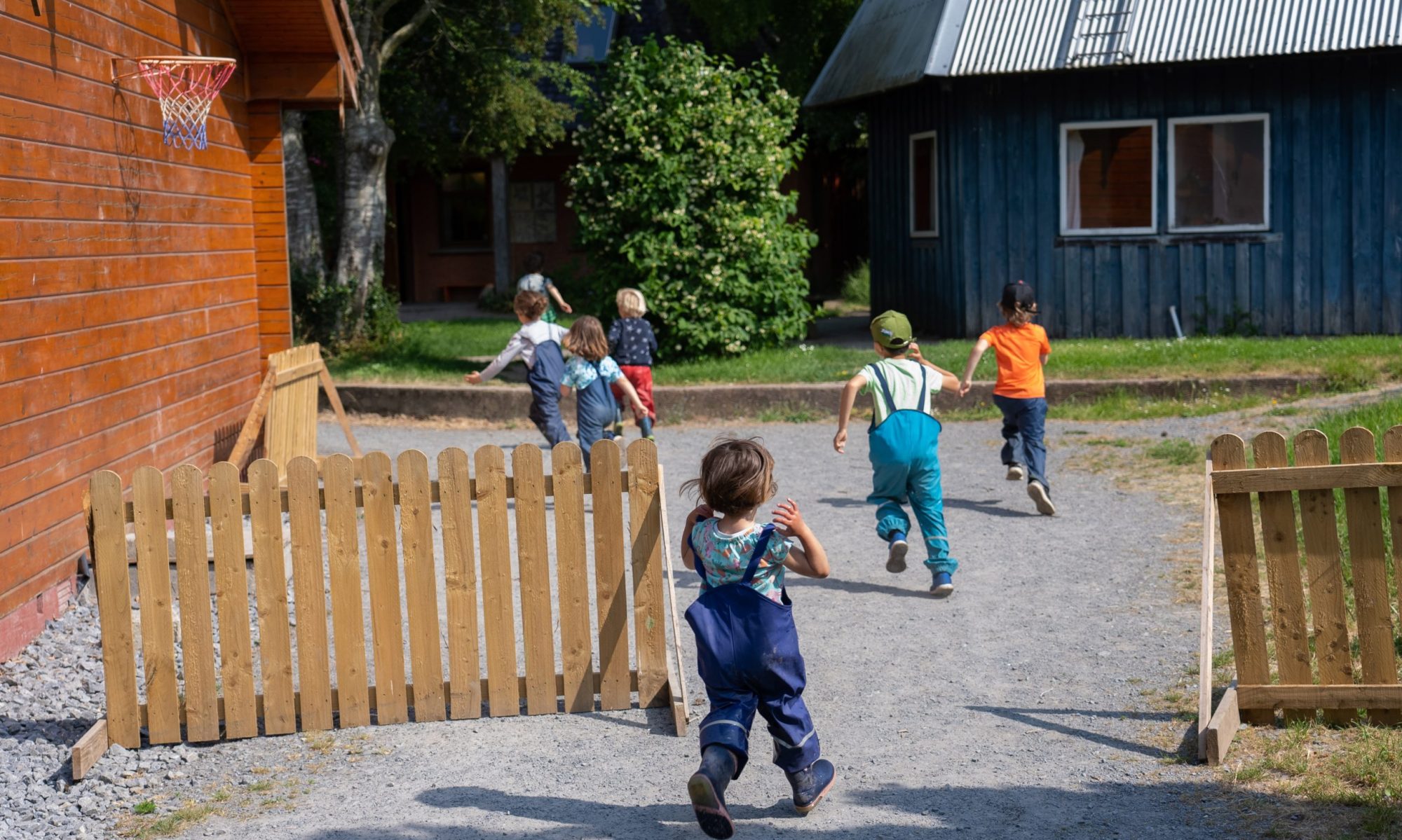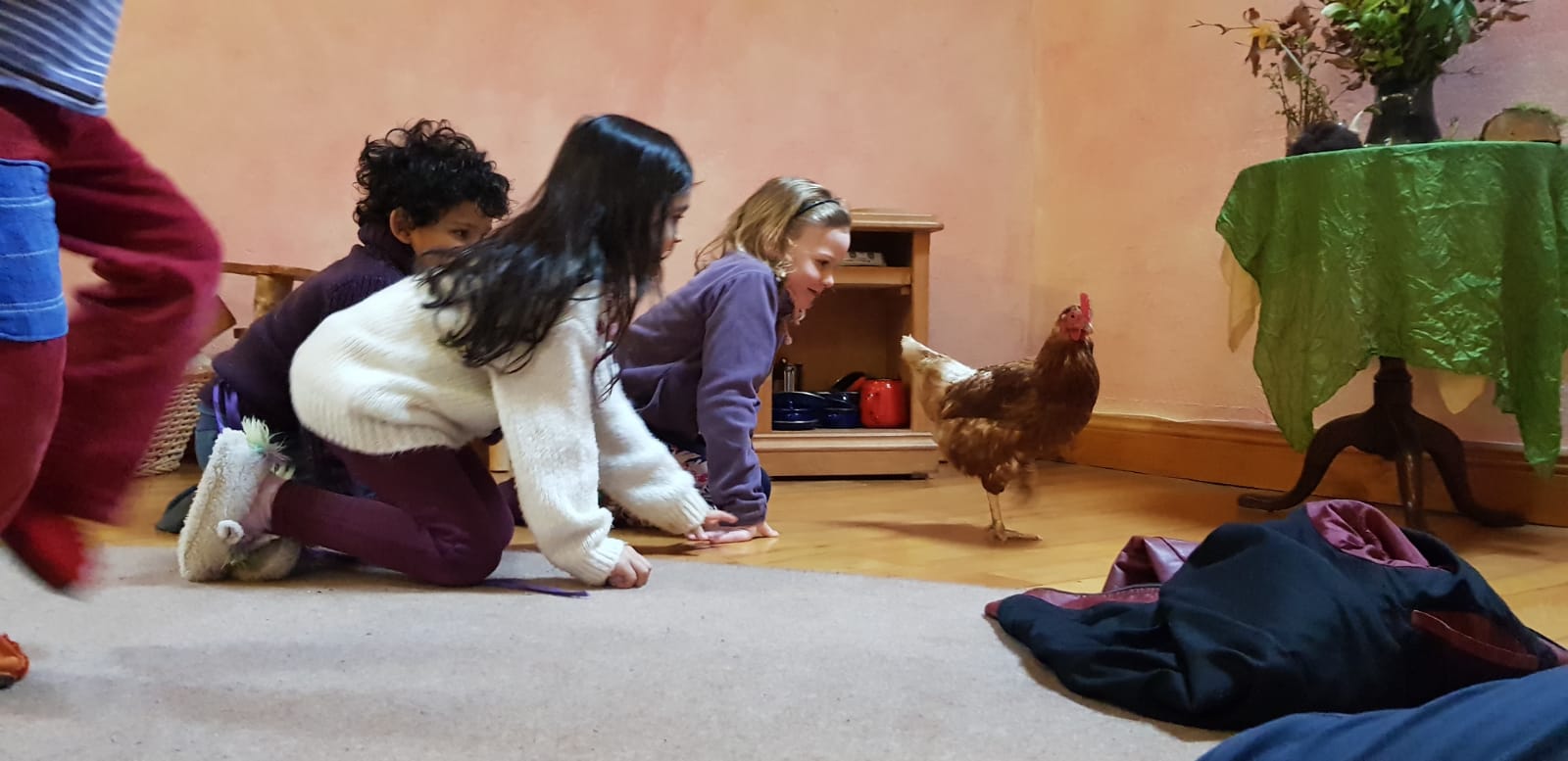Table of Contents
Our mission
‘Receive the child with reverence, Educate with love, Relinquish in freedom.’
Rudolf Steiner





We, the parents, teachers and pupils of KSS believe that we are stronger working together. Our Kilkenny Steiner Primary School is not state subsidised. The school is run entirely by co-operative action between the parents and teachers. This is not just a financial commitment. While everyone appreciates that parents life circumstances may limit the level of input that’s possible, parents are actively encouraged to be involved in all elements of our community, from management to maintenance, fundraising to future planning. Parents, pupils and teachers also come together regularly to celebrate various seasonal festivals throughout the year.

Vision/ Fís
With an approach rooted firmly in the educational principles of Rudolf Steiner, we aim to ignite a life-long love of learning by fostering the child’s natural curiosity for the world around them, and inspiring their innate love, connection, and respect for nature.
We aim to create an unhurried, holistic, and creative learning environment where we address the whole child in thinking, feeling, and doing. Cultivating physical wellbeing, a rich inner life, creativity, and joy in learning.
Our ethos understands the human being to be grounded not only in human culture but also in the natural world, as well as the spiritual world,and that it is essential for this connection with the earth and nature to be fostered while at school.
We wish our children to be confident, creative, free-thinking young people with a strong sense of self and an innate belief in the importance of their place in the world.
Our ethos understands that the qualities referred to here can only flourish within a framework of clearly agreed rules and boundaries which are respected, supported, and upheld by teachers, children, and parents alike.
What’s different?
Waldorf education is a holistic multi-disciplinary approach to learning. Play is the work of children. Waldorf Education seeks to nourish and inspire imaginative creative thinking.
Arts and sciences are carefully woven together in the classroom allowing children to learn in ways that they uniquely experience.
We do not pursue literacy or numeracy before the age of seven, although the foundations for these are established. Children of this age are encouraged to discover the world around them, their fellow human beings, and their own capacities and possibilities; through play, exploration and imitation.
Rather than dividing knowledge into separate distinct disciplines, learning is multi-sensory and encourages multiple diverse approaches to learning and problem solving.
Steiner education is geared toward a love of life long, self motivated learning.
Electronic technology is not a part of the primary school learning environment. Instead, Waldorf classrooms are filled with natural and and child-created materials. Children make their own textbooks based on collaborative learning with their teacher.
Waldorf education seeks to develop adults with critical thinking skills and character, so that they can adapt to a wide variety of situations and contribute to the world in a meaningful way.
Waldorf students shine where it matters most – outside the test bubble. They are encouraged to find and pursue their interests with enthusiasm. They learn to approach the world with interest, engagement and empathy.


